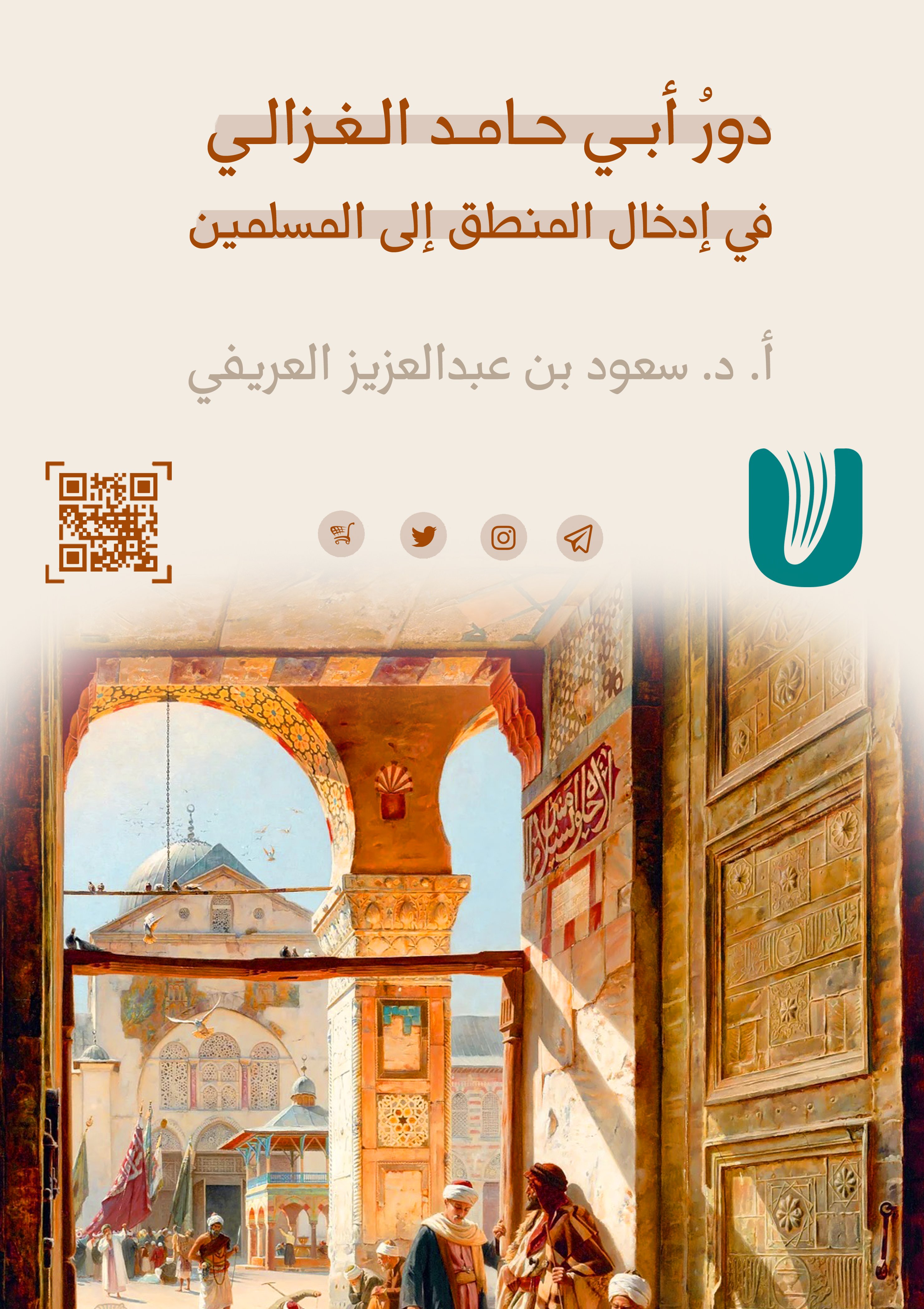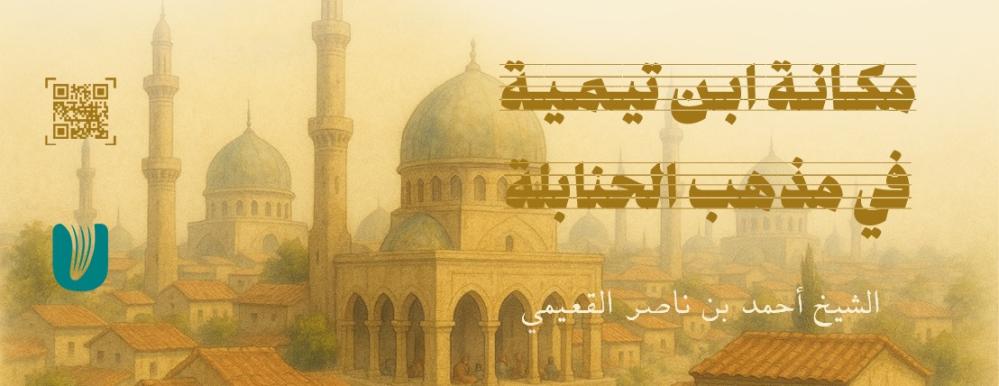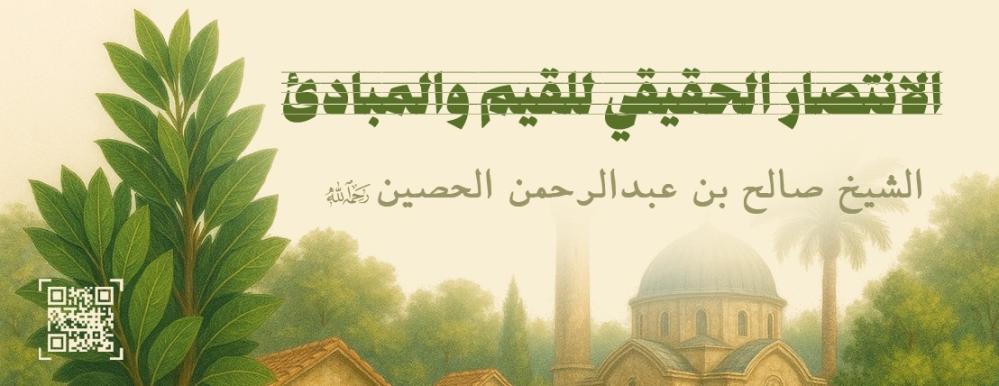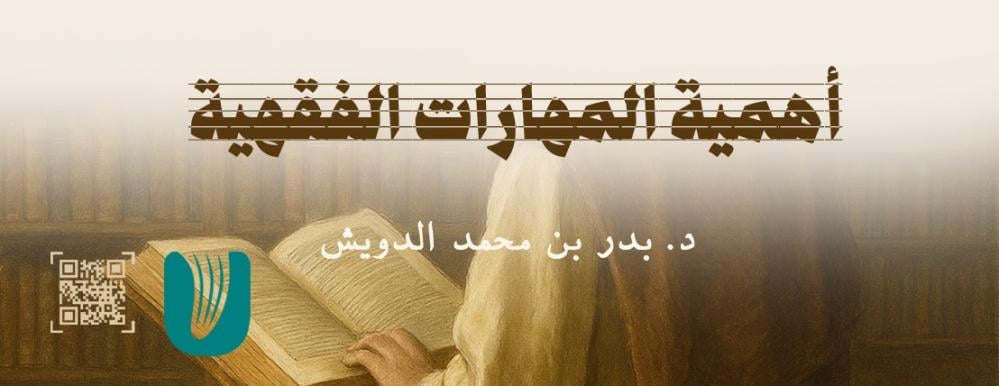The role of Abu Hamid Al-Ghazali
In introducing logic to Muslims
Mr. Dr. Saud bin Abdulaziz Al-Arifi
Although, in Ibn Taymiyyah’s opinion, Al-Ma’mun was the one who had the greatest responsibility for introducing philosophy to Muslims, at least from a political standpoint, in his view, Al-Ghazali was the one who had the greatest responsibility for introducing logic into the legal sciences, especially the two principles: the foundations of jurisprudence and the foundations of religion. Al-Ghazali said at the beginning of his book “Al-Mustasfa fi Usul Al-Fiqh” [1] : ( In this introduction, we mention the perceptions of minds and their confinement to definition and proof, and we mention the condition of the true definition and the condition of true proof and their divisions, on a more concise approach than what we mentioned in the book “The Test of Consideration” and the book “ The criterion of science." This introduction is not part of the general science of principles, nor is it one of its specific introductions. Rather, it is the introduction to all sciences, and whoever does not understand it has no confidence in his sciences at all .
Al-Qarafi (d. 684 AH) of the Malikis agreed with him on this, and he said, commenting on Al-Razi’s statement regarding the conditions of ijtihad: (It is absolutely required to know the conditions of limitation and proof), Al-Qarafi said: (Knowledge of this is not complete except by mastering the science of logic, for there is nothing in it other than that, so it is Logic is a condition for the position of ijtihad) [2] , and Ibn Hajar al-Haytami (d. 973 AH) approved of this [3] .
Ibn al-Salah commented on al-Ghazali’s previous statement by saying: (This is rejected, since every sound mind is of course logical, and how many imams have not raised logic as a head) [4] .
What is strange is that this inclusion of logic in a book on the principles of jurisprudence did not appeal to even the philosopher Ibn Rushd (d. 595 AH), at least from a technical standpoint. When he summarized “Mustafa al-Ghazali,” he omitted the logical introduction from it, saying: (And Abu Hamid had presented a logical introduction before that, claiming that it led him to say that the theologians in this art looked at some logical matters, such as their consideration of the definition of knowledge and other things. And we will leave everything To his place; whoever seeks to learn more than one thing at a time will not be able to learn even one of them) [5] .
This is in contrast to the opinion of the jurist Ibn Qudamah al-Hanbali (d. 620 AH), who retained the logical premises in his fundamentalist book “Rawdat al-Nazir wa Jannat al-Manazhar,” which he based on “Mustastafa al-Ghazali” [6] . Was this a conviction by Ibn Qudamah of Al-Ghazali’s opinion regarding the necessity of logic, or merely dealing with the status quo, and that knowledge of the terminology of logic has become necessary for students of fundamentals?
Al-Ghazali himself stated in his previous text that this logical introduction is not part of the science of jurisprudence, but he did not mean that understanding the science of jurisprudence does not depend on it. Rather, he meant that it is not limited to it, but rather it is a condition for understanding all theoretical sciences. As is evident from the continuation of his words, he said: (Whoever wishes not to write this introduction should start with the book from the first pole, for that is the beginning of the principles of jurisprudence, and the need of all theoretical sciences for this introduction is like the need of the principles of jurisprudence) [7] .
One of Al-Ghazali’s exaggeration in his reliance on logic is that he dressed it in a Qur’anic guise! He explained the levels of the call mentioned in the noble verse: “Invite to the way of your Lord with wisdom and beautiful exhortation, and argue with them in a way that is best” [An-Nahl 125] with the three logical analogies: the demonstrative, the discursive, and the dialectical! [8] . This interpretation was repeated by the philosopher Ibn Rushd (d. 595 AH) [9] .
Ibn al-Qayyim said: (This is false; it is based on philosophical principles; and it contradicts the principles of Muslims and the rules of religion in many ways) [10] .
He also said: (This is not one of the interpretations of the Companions or the Followers, nor of any of the imams of interpretation, nor even of the interpretations of the Muslims; it is a distortion of the words of God Almighty, and an interpretation of it on the terminology of logic that is deprived of reason and faith. This is of the type of Qarmatian and mystical interpretations... The Qur’an is innocent of all of that, free from these falsehoods and nonsense) [11] .
Al-Ghazali stated in the introduction to “The Standard of Knowledge” that his motivation for writing this book was (to understand the methods of thought and theory, and to enlighten the paths of analogies and lessons. Since the theoretical sciences were not by nature and instinct acquired and gifted, they were inevitably an desired result, and not every student is good at seeking. ... Since the intelligibles abound in the intelligibles and the causes of misguidance, and the mirror of the mind does not cease to be disturbed by the mixtures of illusions and distortions of the imagination, we have arranged this book as a standard for consideration and consideration, a weighing scale for research and thought, a refinement for the mind, and a sharpener for the power of thought and reason, so that in relation to the evidence of the intellects it will be like accidents. With regard to poetry and grammar, in addition to parsing, just as the verse in which poetry has deviated from its meter is not known except by the scale of prosody, and the correctness of the parsing is not distinguished from its error except by the criterion of grammar, likewise no distinction is made between corrupt evidence and its sound, correct and invalid except by this book, for every theory is not balanced by this scale. And he is not calibrated according to this standard, so know that he is of poor caliber and not safe in the wilderness and the depths) [12] .
Then he presented an objection that the rational person is independent of the perfection of his innate mind from this standard and balance, and he answered this objection by saying that innate nature may deviate by submitting to the rulers of sense and illusion, so it gives priority to the ruler of reason. Although they may be wrong.
He gave an example of the error of sense in not paying attention to the movement of the shadow and the growth of the child because of their extreme slowness. The ruler of reason corrects this error.
Then he moved with the imaginary ruler to a doctrinal example that demonstrates the use of logic in doctrinal interpretation, and he said: (As for the imaginary ruler, do not neglect his denial of an existence without any indication of its direction, and his denial of something that does not fit the bodies of the world with separation and connection, and cannot be described as being inside or outside the world, and were it not for The sufficiency of reason is the worst delusion in its misguidance, because it has entrenched in the souls of scholars corrupt beliefs in the Creator of the earth and heaven, as it has entrenched in the hearts of the common people and fools) [13] .
What is described here as the corrupt beliefs of the common people and fools is nothing but what the predecessors agreed upon, and was stated by the revelation in proving the self-transcendence of the Almighty God! The rational argument of the predecessors against him is an abstention that exists neither inside nor outside the world. This is a denial of the two opposites, and it is not appropriate for God’s perfection and greatness to be mixed with His creation. Therefore, it is necessary that God Almighty is outside the world, separate from His creation and distinct from them. If that is proven, it is necessary for Him to prove the supremacy of God over His creation. Because this requires perfection [14] .
Al-Ghazali here wants to invalidate this rational argument by claiming that it is delusional, and the illusion is only taken from the senses, so the ruler of reason does not accept it, just as he did not accept from the senses his belief that the shadow would not move and the newborn would not grow. Rather, he describes the two rulers of sense and illusion in such situations as treason, and claims that the Sharia called them whisperers, and attributed them to Satan!
Then he claimed that salvation from the temptation of the rulers of sense and illusion is through the mind’s gentleness in arranging the premises with which it accepts the illusion, until it leads it to the conclusion that it denies, so it becomes clear that his denial was due to a deficiency in his nature, not because it is false. This is the purpose of his book, which was a standard for science [15] !
Then he asked a question about the reason for the differences in the theorists’ articles despite their reliance on logic, and he answered in two ways:
1. The powers of most of them fall short of overcoming the obstacles of inference and achieving the conditions of proof that produce certainty.
2. The severity of the suspicion between false propositions and truthful ones based on delusion [16] .
Thus, Al-Ghazali, may God forgive him, declares in the clearest terms in the introduction to his most extensive and important logical book, “The Standard of Science,” his main purpose for the project of inserting Greek logic into the sciences of Islam. Namely, the deviation of the clear mind from supporting the doctrine of the predecessors regarding divine attributes, whom he called the common people and the fools [17] ! He dares to undermine their consensus on what the revelation declared regarding the doctrine of divine supremacy above the throne, supported by common sense and clear reason, simply by attaching it to a term that he invents and repeats: “the rule of illusion” [18] .
Here he confirms what he mentioned in the introduction, and when explaining the second section of analogy materials, he says that they are not suitable for proofs; Because they are not certain: (The second type: that which is not suitable for definitive facts nor for speculative matters, but rather is only suitable for confusion and fallacy, which are the suspicious ones; that is, those that are similar to the previous sections in appearance and are not of them. They are three types: The first: pure illusions, which are propositions that are ruled by illusion. The human being has a firm ruling that is free from comparison between doubt and doubt, such as his ruling at the beginning of his nature with the impossibility of the existence of an existent with no indication of its direction, and that an existent existing on its own that is neither connected to the world nor separated from it, and is neither inside the world nor outside of it: impossible , and this is similar to rational a priori things, such as the ruling that a person The one cannot be in two places at the same time, and the one is less than the two. It is stronger than the well-known notions that we have represented that justice is beautiful and injustice is ugly, and with this strength it is false, regardless of whether it is in matters that are prior to the tangible things or more general than them, because illusion is more familiar with the tangible things, so it judges what is not tangible It is known that he is a liar from the premises that believe the illusion, but does not submit to the conclusion, since the power of the illusion does not contain the perception of anything like it, and this is the strongest false premise. It is true and certain, and it is as valid to rely on it as relying on pure rationality and on sensory matters) [19] .
The strange thing is that with this control and presumption, clear reason becomes a monopoly on what the Greek pagans and their atheists decided! After that, there is no blame on Sunni scholars for singling out his articles and writings for criticism and scrutiny. They fully understood the consequences of his approach.
Ibn Taymiyyah said: (Muslim theorists still criticize the path of the logicians, and point out the weakness, accent, deficiency of reason, and inability to speak, and they point out that it is closer to corrupting rational and linguistic logic than to correcting that, and they do not agree to follow it in their consideration and debate, not with those who They are loyal to him and not to those who are hostile to him. Rather, it has been used extensively since the time of Abu Hamid, as he included an introduction to logic at the beginning of his book, “Al-Mustasfa,” and claimed that his knowledge could only be trusted by those who knew this logic. He wrote in it “the criterion of knowledge” and “the test of consideration.” He wrote a book he called: “Al-Qasas Al-Mustaqim”, in which he mentioned five scales: the three conjunctive scales, the continuous conditional, and the dissociated conditional, and changed their phrases to examples that he took from the words of the Muslims, and claimed that he took those scales from the prophets, and mentioned that he addressed some scholars with that, and wrote a book In their aims, he wrote a book about their nonsense, and explained their disbelief due to the issue of the eternality of the world, denying knowledge of particulars, and denying the Day of Resurrection.
In the last of his books, he made clear that their way is corrupt and does not lead to certainty, and he condemned it more than he criticized the way of the theologians, but after he had deposited his controversial books to those who do not deserve them and other meanings of their false speech that is contrary to the religion of the Muslims, he changed his phrase and expressed it with the phrase of the Muslims, who did not want what he wanted. ...).
Until he said: (What is meant here is that Abu Hamid’s books, although he mentions many of their false words in them, either in their words or in other words, in the end, he exaggerates in his condemnation of them, and shows that their way includes ignorance and disbelief that necessitates its condemnation and its corruption is greater than the way of the theologians. He died while he was preoccupied with Al-Bukhari and Muslim, and the logic in which he used to say what he said did not achieve his goal, and the doubt and confusion that existed in him did not go away from him. Rather, he was stuck and confused about what was one of the greatest divine high demands and sublime divine purposes, and logic was of no use to him. But because of what happened to him during his life and other things, many theorists began to introduce Greek logic into their sciences, to the point that those of the later generations who follow the path of these people began to think that there is no path other than this, and that what they claimed of limitation and proof is a correct matter accepted by rational people, and he does not know. The wise and virtuous Muslims and others still criticize and criticize this, and Muslim theorists have written numerous works on it, and the majority of Muslims criticize it in general, because of what they see of its effects and implications, which indicate what is in its people that contradicts knowledge and faith, and the situation leads them to types of Ignorance, disbelief, and misguidance) [20] .
He also said: (What is meant here is that the Muslim theorists are still classifying in responding to them in logic and non-logic, and they show their error in what they mentioned in all of the definition and analogy, just as they show their error in the divine and other matters, and none of the Muslim theorists paid attention to their method, but rather the Mu’tazilites, the Ash’aris, and the Karramites. The Shiites and all other sects of thought used to criticize it and prove its corruption, and the first to mix their logic with the principles of the Muslims was Abu Hamid al-Ghazali, and Muslim scholars spoke about it in a way that would be long to mention) [21] .
Abu Bakr bin Al-Arabi was quoted as saying on the authority of his sheikh Al-Ghazali: (Our sheikh Abu Hamid entered the belly of the philosophers and then wanted to emerge from them, but he was unable to do so) [22] .
He mentioned on the authority of Ibn al-Qushayri that he said about al-Ghazali:
We are acquitted before God of a group of people who have a disease from the Book of Shifa
And how many times have I said, O people, you are on the brink of a cliff from the Book of Healing
When they underestimated our warning, we returned to God until enough was enough
So they died following the religion of Rastallus, and we lived according to the religion of the Chosen One [23]
Ibn Taymiyyah said at the beginning of the second stage of his response: This is what he devoted to criticizing the claim that the benefit of the logical limit is to depict the limited: ( But this entered into the words of those who spoke about the principles of religion and jurisprudence after Abu Hamid, in the late fifth century and the beginning of the sixth century. As for Abu Hamid, he put a logical introduction at the beginning of “Al-Mustasfa,” and claimed He who does not have knowledge of it has no confidence in any of his knowledge, and he classified it as “the touchstone of consideration” and “the standard of knowledge,” and his confidence always increased in it. What is more amazing than that is that he wrote a book that he called “Al-Qasas Al-Mustaqim” and attributed it to being the teaching of the prophets. He learned it from Ibn Sina, and he learned it from the books of Aristotle, and those who spoke about the limits after Abu Hamid were the ones who spoke about the limits in the manner of the Greek logicians, and as for the other sects of theorists from all the Mu’tazila, Ash’arite, Karramite, Shiite and other sects who were classified in this regard as followers of the four imams And others, for them, the limits only serve to distinguish between the limited and other things... This is well-known in the books of the theorists in places that are long described in the books of theologians among the scholars of proof and others, such as Abu Al-Hasan Al-Ash’ari, the judge Abu Bakr, Abu Ishaq, Abu Bakr bin Fourak, and the judge Abu Ya’la. Ibn Aqeel, Abu al-Ma’ali al-Juwayni, Abu al-Maymun al-Nasafi al-Hanafi, and others, and before them Abu Ali, Abu Hashim, Abd al-Jabbar and others like them among the Mu’tazila sheikhs, as well as Ibn al-Nubakhti [24], al-Musawi, al-Tusi, and other Shiite sheikhs, as well as Muhammad ibn al-Haysam and other Karamite sheikhs. When they speak about the definition, they say: The definition of a thing and its reality are its characteristics that distinguish it .) [25]
The intention of mentioning at length Ibn Taymiyyah’s emphasis on Al-Ghazali’s main role in promoting logic among the jurists, and his innovation of mixing logic with the principles of Muslims, is to point out that Ibn Taymiyyah, in his response to the logicians, only attributes to them the opinions and rules attributed to him according to what he established about them and expressed by Abu Hamid Al-Ghazali in His logical books, especially “The Criterion of Knowledge,” which Ibn Taymiyyah described as great, are the main reference for Ibn Taymiyyah in documenting the opinions of logicians, even though he had read the books of Aristotle, Ibn Sina, Al-Razi and others, as he stated in his response and quoted from some of them, but what was revealed among the jurists Rather, it is what Al-Ghazali decided, and from it the later scholars took [26] .
Dr. Ali Al-Nashar said about the book “Al-Mustasfa fi Usul Al-Fiqh”: (This book has special importance in the history of the science of jurisprudence, because its author was the first to mix Muslim sciences with logic, and this mixing was in “Al-Mustasfa”) [27] .
Perhaps it is important, finally, to note what Al-Suyuti mentioned regarding Al-Ghazali’s retraction of the permissibility of logic in what some scholars reported [28] .
What is more likely is that this is similar to what was mentioned by the commentator on “Al-Tahawiyyah” and others, that Al-Ghazali “ended up in pause and confusion regarding theological issues, then he turned away from those paths and turned to the hadiths of the Messenger, may God bless him and grant him peace, and he died with Al-Bukhari on his chest” [29]. .
Al-Ghazali was not alone among jurists in glorifying logic and relying on it. Ibn Hazm al-Zahiri (d. 406 AH) preceded him in glorifying it and making it a condition for jurisprudence. In it, he wrote his treatise: “Approximation to the Limit of Logic, and the Introduction to It with Colloquial Words and Jurisprudential Examples.” He said at the beginning of it: “And whoever does not know the attributes of named things, which necessitate the separation of their names, and limits all of that to their limits, then he is ignorant of the extent of this precious blessing, and passes by it heedless of He knew her, turning away from her, and he was not only slightly disappointed, but very great.
If an ignorant person says: Did any of the righteous predecessors speak about this? It was said to him: This knowledge is settled in the soul of every person of heart. The intelligent mind is connected to what God Almighty has enabled in it of the breadth of understanding of the benefits of this knowledge, while the ignorant mind is weak like a blind person until he is alerted to it.
And so are all other sciences. None of the righteous predecessors, may God be pleased with them, spoke about issues of grammar, but when people’s ignorance became widespread about the differences in vowels, which differ in meanings in the Arabic language, the scholars wrote grammar books, and they removed a great problem, and that was helpful in understanding the words of God Almighty and the words of His Prophet, may God bless him and grant him peace. May God bless him and grant him peace. Whoever is ignorant of this lacks understanding of his Lord Almighty, so this is what the scholars did well and deserves a reward for them. Likewise, there is the saying regarding the compositions of the scholars’ books in language and jurisprudence. The righteous predecessors were sufficient for all of that with what God bestowed upon them of virtue and the witness of prophecy, and those after them were poor in all of that. This is seen as good, and the shortcomings of those who have not studied these sciences and have not read these books are known, and that they are close in lineage to animals.
And so is this knowledge; For from his ignorance, it is hidden from him that the words of God Almighty are based on the words of his Prophet, may God bless him and grant him peace, and he is permitted to confuse him with a permissibility that does not distinguish between it and the truth, and he does not know his religion except imitation, and imitation is reprehensible, and rather if he is free from confusion, we seek refuge in God from it. For this reason and what we mention after this, God willing, it is necessary to devote effort to compiling this knowledge, and to work hard to explain and expand it, with God’s will and power.) [ 30]
Despite this exaggeration of Ibn Hazm in logic, his impact was limited in the spread of logic among jurists, when compared to the influence of Al-Ghazali, and perhaps this is due to their aversion to Ibn Hazm’s extremism and his harshness towards his opponents, especially the Ash’aris, whose doctrine was prevalent at the time [31] , so We see Ibn Taymiyyah contenting himself with referring to Ibn Hazm when mentioning what logic proves regarding the categories of existence, and that most of them are due to mental abilities that do not exist outside. He said: ( This was acknowledged by those who support them and venerate them, such as Abu Muhammad ibn Hazm and others, and for his glorification of logic he narrated it with his chain of transmission to Matthew. The translator who translated it into Arabic) [32] .
-------------------------------------------------- -------
[1] p. 10. Ibn Tamlus Al-Andalusi (d. 620 AH) noted that Al-Ghazali avoids mentioning the word “logic” in the titles of his logical books. Because of the slander and disapproval that this title has received. See: “The Greek Heritage in Islamic Civilization,” p. 154.
[2] See: Al-Qarafi, “Nafa’is Al-Usul fi Sharh Al-Mahsool”, (9/3833), and see his: “Sharh Tanqih Al-Fusul”, p. 437.
[3] See: “Al-Fatawa Al-Kubra Al-Fiqhiyyah”, (1/50).
[4] See: Al-Dhahabi, “Biographies of Noble Figures,” (19/329).
[5] “The Necessary in the Principles of Jurisprudence,” 37, 38, edited by Jamal al-Din Alawi, 1st edition, 1994 AD, Dar al-Gharb al-Islami, Beirut.
[6] See: On the World Wide Web: http://feqhweb.com/vb/t3141.html
[7] “Al-Mustasfa”, p. 10.
[8] See: Al-Ghazali, “Al-Qastas Al-Mustaqim,” pp. 12, 13, 62, 63, edited by Mahmoud Bijou, 1413 AH, Al-Matba’a Al-Ilmiyya, Damascus. Muhammad Mahran has researched: “Logic and Qur’anic Scales, a Reading of the Book of Al-Qastas Al-Mustaqim” by Al-Ghazali, published by the International Institute of Islamic Thought as part of a series of scientific research (13).
[9] See: “Fasl al-Maqal regarding the connection between Sharia and wisdom,” pp. 30, 31, edited by Muhammad Amara, Dar al-Ma’arif, 2nd edition. See: Muhammad Rashad Salem, “A Comparison between Al-Ghazali and Ibn Taymiyyah,” pp. 35-38, Dar Al-Qalam, 1413 AH, Kuwait.
[10] “The Key to the House of Happiness” (1/433).
[11] Previous, (1/491, 492).
[12] “The Standard of Science,” pp. 59, 60.
[13] “The Standard of Science,” 63.
[14] See: Ibn Abi Al-Izz, “Explanation of the Tahawi Creed,” (2/389 - 391).
[15] See: “The Standard of Science,” pp. 64, 65.
[16] See: “The Standard of Science,” 65.
[17] Yazid bin Harun said: (Whoever claims that {The Most Gracious is established above the Throne}[Taha 5] contrary to what is established in the hearts of the common people is a Jahmite). Narrated by Abdullah bin Ahmad in “Al-Sunnah” (2/482) No. 1110, and see: Ibn Taymiyyah, “Bayan Talbis Al-Jahmiyyah” (1/435).
[18] Al-Ghazali repeated his claim that ruling by abstention that exists neither inside nor outside the world is an illusory and irrational ruling in places in the “Standard of Science.” See: from it: pp. 63, 199, 226.
[19] “The Standard of Science,” pp. 198, 199.
[20] “The Response to the Logicians,” pp. 194-198.
[21] “The Response to the Logicians,” p. 337.
[22] “The Response to the Logicians,” p. 483.
[23] “The Response to the Logicians,” pp. 510, 511. An error occurred in it: (Ibn al-Arabi) replaced (Ibn al-Qushayri), and the correction is from Mukhtasar al-Suyuti, p. 342. As it occurred in the summary: [We cut off brotherhood] instead of: (We are acquitted before God).
[24] He is Al-Hasan bin Musa, (d. 300 AH). A treatise on the criticism of logic was mentioned, but it is missing. Ibn Taymiyyah conveyed some of his critical views of logical analogy. See: Mustafa Tabatabai, “Muslim Thinkers Confronting Greek Logic,” p. 32.
[25] “The Response to Logicians,” pp. 14-16.
[26] Wael Al-Harithi suggested that Al-Ghazali did not have a special precedence in mixing philosophy and logic with the Islamic sciences. Rather, he was preceded by the Mu’tazilites and some Ash’arites in doing so. Rather, he was distinguished by his specialization in philosophy in explanation and criticism, and by the large number of his logical works, which attracted attention from the role of those who preceded him. See: “The relationship of the science of jurisprudence to the science of logic,” p. 191.
[27] “Research Methods,” p. 366.
[28] See: Al-Suyuti, “The Bright Saying in the Prohibition of Logic,” p. 132, edited by Al-Sayyid Abdel-Wahhab, Dar Al-Hadith, Cairo, 2008 AD.
[29] Ibn Abi al-Izz: “Explanation of the Tahawi Creed,” (1/243, 244).
[30] “Approximation to the Limit of Logic,” p. 10, edited by Ahmed Al-Mazidi, Dar Al-Kutub Al-Ilmiyyah.
[31] See: Sultan Al-Amiri, “Ibn Taymiyyah’s Distinction in Criticizing Aristotelian Logic,” a research published in his book “Illuminations in Doctrinal Tahrir,” pp. 235-237.
[32] “The Response to the Logicians,” pp. 131, 132, and see p. 307.
Click here to access the full book page.
Click on the image to access the image version (pdf), which can be downloaded and published.





